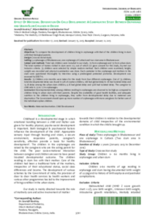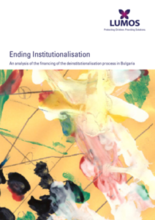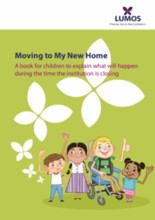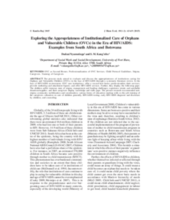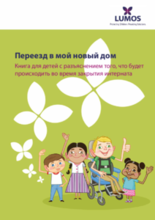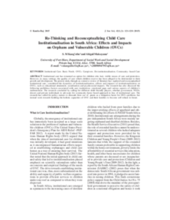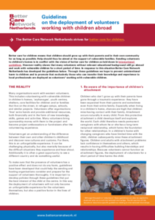Displaying 491 - 500 of 772
This review discusses the worldwide phenomenon of child institutionalisation and assesses scientific evidence on the developmental effects of early institutional care.
This study compares the development of children living in orphanages with that of children living in slums with their biological parents in Odisha, India.
According to this report from Lumos, in 2010 there were more than 6,700 children living in institutions in Bulgaria.
The aim of this book is to explain to children what to expect during the time the institution in which they reside is closing.
This interpretive study examines the experiences of 54 Ethiopian emerging adults who had aged out of institutional care facilities. Findings are derived from interviews and focus groups in which questions and activities focused on the challenges faced by participants and the supports they relied on throughout the transition process.
The present study aimed to evaluate and discuss the appropriateness of institutions caring for Orphans and Vulnerable Children (OVCs) in the face of HIV/AIDS through a systematic literature review.
Целью этой книги является объяснить детям то, что их ожидает во время закрытия интерната.
The present study, through an extensive review of literature has explored and reconceptualised institutional care and considered the dynamics of institutionalization. The study also examines the effects and impacts of institutionalization on OVCs in South Africa, such as educational attainment, socialization and psychosocial impacts.
Through these guidelines BCN Netherlands hopes to prevent unintentional harm to children and to promote that exclusively those who can transfer their knowledge and experience to local professionals are deployed as volunteers working with vulnerable children.
This video from Globalsl.org, produced by Kindea Labs, describes both the negative impacts of orphanage volunteering and tourism as well as the ways in which international volunteering can be conducted appropriately for a positive impact on a community.


